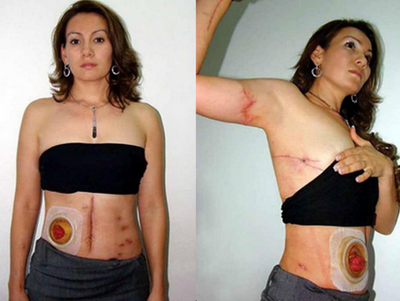High percentage of carbohydrate in potatoes scares many of you. However, potatoes also have many vital nutrients that you cannot find in other vegetables. Potatoes have high vitamin C and potassium content, which help get rid of inflammation of intestines and mouth ulcers. Moreover, the carbohydrates in potatoes help your brain to function more effectively. Then, how does the weight problem come into picture? That happens when you cross the limit of your intake.
If you eat too much of potatoes, they can literally spike your blood glucose level and that can lead to weight gain. But, if you want to have a very light variant of potato, you can go for potato chips. That will, definitely, not add to your weight gain if you take them in moderation. Potato chips are usually deep-fried in cooking oil. If you need a healthy option, then you can bake the chips in oven. Read on to learn the process of making potato chips.
Complexity Level: Basic
Time Required: 35-40 minutes
Resources Required:
- 2 firm Potatoes
- Salt
- Chili powder â ½ teaspoon
- 250 ml healthy cooking oil
Instructions:
- Start with good potatoes: The best part of making potato chips is you can use any variety you have. Make sure the potatoes do not have sprouting or green spots on it. Start by cleaning the potatoes and peel them thoroughly.
- Slice the potatoes: Next, slice the potatoes evenly. You can use kitchen knife or a cabbage slicer. This is the only difficult part in the entire process. If you are not able to get thin slices, you need not worry, as thick slices are tastier than thin ones. It is enough to make sure that you are able to slice it evenly.
- Soak the potato slices: After you are done with the slices, take a bowl of ice water and soak the slices in it for about half hour. The idea behind putting them in ice water is to remove excess starch so that the chips remain crispy.
- Dry the potatoes slices on a paper towel: Next, drain the slices and dry them on a paper towel.
- Add salt and spices: After you dry the potato slices, sprinkle salt and chili powder on them and mix well. Let it stand for 5 minutes, as this allows the salt and chili powder to seep into the chips.
- Heat oil in a pan: Take a large thick-bottomed pan with high sides. The high sides would keep the oil from splattering out. Pour the oil in and allow it to reach 250 degree. You can use a thermometer to check the temperature or the best way is to drop in a small piece of a chip and see if it sizzles quickly.
- Fry the potato slices: Once the oil reaches the right temperature, drop in the potato chips. Make sure that you do not overcrowd the pan with the entire lot. Fry the chips until they are golden brown.
- Drain the fried potato chips: Remove the chips from the oil using a slotted spoon and place them on a paper towel. You can also place the chips over a cooling rack or any vessel that has slotted holes in it. However, paper towel is more helpful as it absorbs the excess oil quickly. Repeat the same steps for the remaining potatoes slices.
- Cool the chips: It is essential to cool the fried chips properly. Store the chips in an airtight container.
Frequently Asked Questions:
1. Does sunflower oil make potato chips better?
The taste of the chips may not be good if you use sunflower oil. The best cooking oil could be canola oil, peanut oil, or olive oil.
2. How can we make a healthy version of potato chips?
Follow the same steps and instead of deep-frying the chips, bake them in oven. Place the potato chips on a parchment paper and spray oil on top of it. Sprinkle salt and chili powder on them. Finally, pop the tray into oven. Bake the chips for 20 minutes. You can get the same crunch without losing any of its nutrients.
Quick Tips:
- For extra crunch, you can place the raw slices on a sheet and cool it in a freezer instead of soaking them in cold water.
- If you immediately store the chips in a container without cooling, they would become chewy.
Things To Watch Out For:
- Do not stand too close to the hot oil while frying.
- Make sure you use healthy cooking oil that has low saturated fats.



